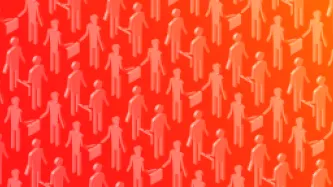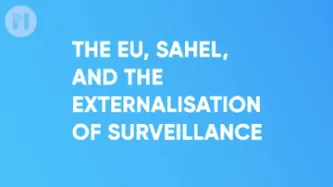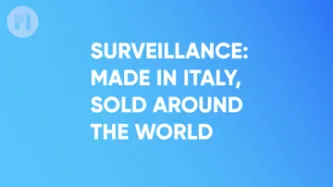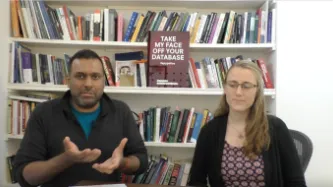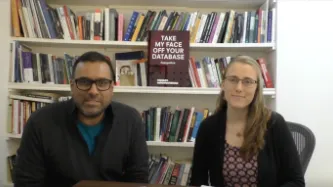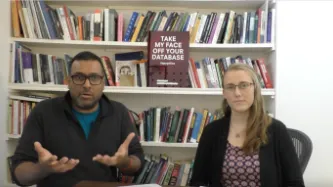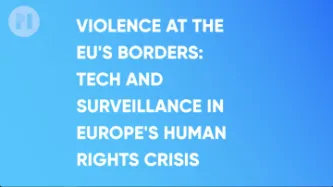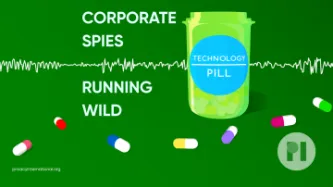Search
Content type: Key Resources
Obtaining adequate information about a public-private partnership is often difficult, especially when sensitive areas of government are involved, such as intelligence and law enforcement. Information about such activities is often purposefully withheld from the public and guarded by excessive laws and punishments.
But if it is safe to access them, there are many methods and resources out there which can help. Many of these sources are already readily available online, while others require desk…
Content type: Key Resources
The UN Guiding Principles are a set of guidelines for states and companies to prevent, address and remedy human rights abuses committed in business operations. The UN Human Rights Council unanimously endorsed the UN Guiding Principles in its resolution 17/4 of 16 June 2011.
The UN Guiding Principles provide the authoritative global standard for action to safeguard human rights in a business context. As such, in the course of an investigation, they can be used to assess the compliance of a…
Content type: Key Resources
There are no universally recognised data protection standards, but regional and international bodies have created internationally-agreed-upon codes, practices, decisions, recommendations, and policy instruments. The most significant instruments are:
The Council of Europe Convention for the Protection of Individuals with regard to Automatic Processing of Personal Data (No. 108), 1981 as amended in 2018;
The Organization for Economic Co-operation and Development Guidelines on the Protection…
Content type: Key Resources
Public-private partnerships might very well involve a technology that is well-known and already widely deployed in other contexts, but it might also be a ground for innovation and novelty.
We can identify two main types of innovation:
A new technology that isn’t widely used or hasn’t been deployed in real world context (outside of a lab or a research paper);
A new set of features added to an existing technology which greatly expand its performances and capabilities.
Another type of “…
Content type: Key Resources
You should check that certain documents and processes are in place so that the contracting state and company are accountable, that there is proper oversight, and adequate redress mechanisms. Note that you should consider the entire life cycle of the partnership. First at the procurement stage, has the procurement process for this contract followed local or international procurement rules? And are those procurement rules adequate? Has there been adequate transparency throughout the procurement…
Content type: Key Resources
i. Added Literature review
There are several resources available that simplify and popularise complex technologies, starting with Wikipedia. Other resources can be tremendously useful even with little to no technical background, such as semi-specialised press. See for example:
MIT Technology review (e.g. quantum computing)
ArsTechnica, (e.g. on NFTS)
PC Mag (e.g. on 5G Mag)
Academic papers are also an avenue to find information although the language might be less accessible without…
Content type: Key Resources
Data protection and privacy
Once you’ve assessed where the data comes from, have you assessed whether the data collection or sharing is lawful?
Is this lawful basis explicitly stated in the documentation of the partnership?
Is the data being collected in ways that people could reasonably expect?
Have the data controllers considered the risks to the fundamental rights and freedoms of the people whose data will be collected?
What will the consequences be of people’s data being…
Content type: Key Resources
Can you broadly define the technology at stake and what it does?
What is the role of data in the technology at stake? (data collection system, data transmission system, data storage system, data processing system)
What are the risks associated with this technology for each particular system?
How innovative and ground-breaking is the technology?
[Optional] What are the risks associated with the innovation factor?
Can you explain how the technology functions in practice?…
Content type: Video
Links
Giacomo’s report on Europe’s Shady Funds to Border Forces in the Sahel https://privacyinternational.org/news-analysis/3223/europes-shady-funds-border-forces-sahel
Giacomo’s report on The European Chase for Saharan Smugglers https://privacyinternational.org/long-read/3347/european-chase-saharan-smugglers
Privacy International’s disclosures on the EU’s surveillance aid https://privacyinternational.org/long-read/4291/surveillance-disclosures-show-urgent-need-reforms-eu-aid-…
Content type: Advocacy
Now is the time to strengthen not weaken data protection to keep us all safe. Here we outline some edited areas of our consultation response that highlight the impact of the proposed loss or weakening of many important protections:
The proposal to broadening consent and further processing for research purposes:
PI urges caution with regard to provisions that seek to potentially undermine the strict conditions around obtaining consent. The GDPR placed stronger conditions on obtaining consent…
Content type: Video
Links
You can check out IRPI Media at https://irpi.eu
Their series on surveillance (in Italian) is at https://irpimedia.irpi.eu/sorveglianze/
Their report on Med-Or (in English) is at https://irpimedia.irpi.eu/en-surveillances-medor-leonardo-marco-minniti/
Their report on Cy4Gate (in English) is at https://irpimedia.irpi.eu/en-surveillances-cy4gate-united-arab-emirates/
Content type: Video
In this video we introduce ourselves and explain why we wanted to create the “Teaching about Data” resource and what our goals for the resource are.
Content type: Report
Privacy International’s submissions for the Independent Chief Inspector of Borders and Immigration inspection of the Home Office Satellite Tracking Service Programme
The Home Office have introduced 24/7 electronic monitoring and collection of the location data of migrants via GPS ankle tags. This seismic change cannot be overstated. The use of GPS tags and intention to use location data, kept for six years after the tag is removed, in immigration decision-making goes far beyond the mere…
Content type: Video
Links
Josoor International Solidarity’s website is at https://www.josoor.net
No Name Kitchen’s website https://www.nonamekitchen.org
Border Violence Monitoring Network’s Website is at https://www.borderviolence.eu
Their reports documenting violence and trends in Greece and the Balkans route are at https://www.borderviolence.eu/category/monthly-report/
Lighthouse Report’s investigations on pushbacks in the Aegean are available at https://www.lighthousereports.nl/investigation/…
Content type: Report
El informe se basa en investigación documental y empírica (cualitativa y cuantitativa) realizada por Privacy International (PI) en 2021. Más concretamente, PI envió una encuesta a varios reguladores antimonopolio y a organizaciones de la sociedad civil con sede y/o que operan en diversas partes del mundo.
Las preguntas planteadas a los reguladores y a la sociedad civil versaron sobre su trabajo en la economía digital. Se preguntó a los reguladores y a las OSC si incorporaban consideraciones…
Content type: Report
The report builds on both desk and empirical (qualitative and quantitative) research that was carried out by Privacy International (PI) in 2021. Specifically, PI sent out a survey to several antitrust regulators and CSOs based and/or operating in various parts of the world. The questions posed to regulators and civil society revolved around their work in the digital economy. Regulators and CSOs were asked to comment on whether and how personal data considerations were incorporated into their…
Content type: Report
This briefing takes a look at the private intelligence industry, a collection of private detectives, corporate intel firms, and PR agencies working for clients around the world that have made London their hub.
Often staffed by ex-spooks, and promising complete secrecy, little is known about them. But reports over the years have exposed their operations, including things like hacking and targeting of anti-corruption officials, spying on peaceful environment activists, and running fake '…
Content type: Video
Links
The Enablers by the Bureau of Investigative Journalism
PI's report
Submit your podcast questions
Sign up to our mailing list
Places to listen
You can listen and subscribe to the podcast where ever you normally find your podcasts:
Spotify | Apple podcasts | Castbox | Google podcasts | Overcast | Stitcher | Pocket Casts | Peertube | Youtube | Soundcloud | Podbean | Podcast Republic | Breaker | Podcast Addict | Deezer | and more...
